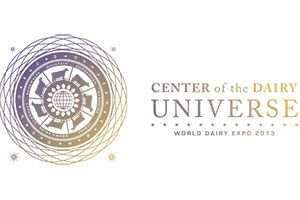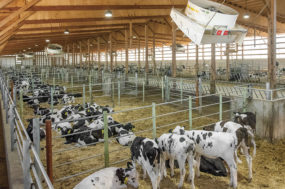Tuesday, October 1 1 p.m. Mendota 2 “Dairy Sustainability: Why It’s Important for You and Your Operation” Roberta Osborne Manager, Farm Smart Innovation Center for U.S. Dairy Dan Rice Partner, Prairieland Dairy LLC Sponsored by: Nutrition Physiology Co. LLC
2 p.m. – Virtual farm tour Mendota 1
Hosted by: Si-Ellen Farms,
Jerome, Idaho
10,800 Milking/Cow Care
Sponsored by: Advanced Animal Diagnostics
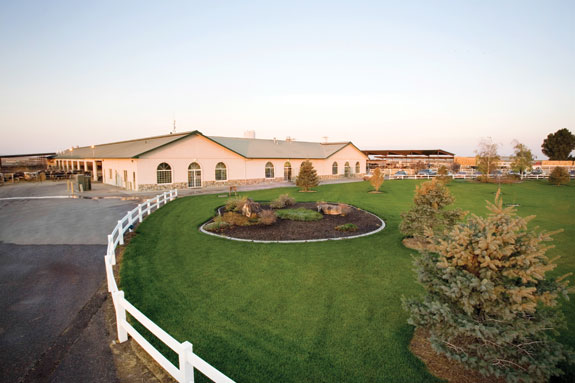
At Si-Ellen Farms, it is believed that if you take good care of the cows, they will take good care of you.
Originally a 100-cow dairy located in Vancouver, Si-Ellen Farms has now grown into two farms, consisting of 10,200 Holsteins and 600 Jerseys on 7,000 acres.
The entire family, including Mike Roth and his seven brothers and sisters, focus their efforts on cow care.
A full-time veterinarian and nutritionist are part of the staff of 145 employees that strive to provide the best care possible. This effort has paid off as they have a rolling herd average of 29,007 pounds of milk with a 160,000 somatic cell count.
Si-Ellen Farms are environmental stewards as well. Within the last five years, they have added a retaining lake to catch irrigation water and developed this lake into a wildlife habitat by adding trees and other vegetation.
Additionally, Si-Ellen Farms composts their manure, reducing the amount of commercial fertilizer and non-renewable resources needed.
Wednesday, October 2
10 a.m. Arena Building
Differences in Making Alfalfa and Grass Silage
Dan Undersander
Research and extension agronomist, University of Wisconsin – Madison
When high-quality grass silage is the goal, it’s important to remember there are differences between making grass silage versus alfalfa silage. Forage extension specialist Dan Undersander will discuss a number of these differences and make recommendations for good grass silage in tubes, bunkers and wrapped bales.
11 a.m. Mendota 2
“How to Survive Current Milk and Feed Prices”
Dr. Michael Hutjens
Professor, University of Illinois at Urbana-Champaign
Sponsored by: Sioux Automation
Noon – Virtual farm tour Mendota 1
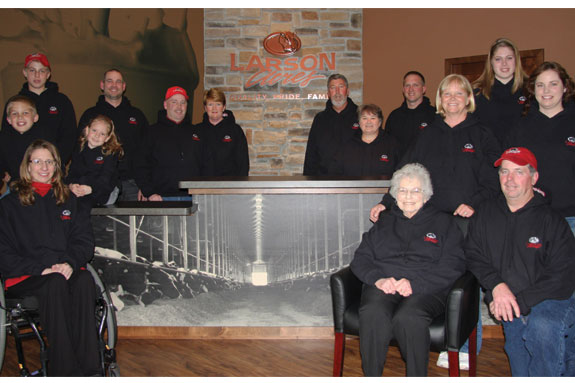
Hosted by: Larson Acres,
Evansville, Wisconsin
2,900 Milking/Technology
Sponsored by: DuPont Pioneer
By using the latest technology, Larson Acres produces high-quality milk more efficiently while being good neighbors.
The Larson Acres herd consists of 2,900 cows, each outfitted with their own electronic ID.
With these IDs, the Larson family and farm employees can keep a close eye on production levels.
Most of the herd is housed in a cross-ventilated barn built in 2010. Several new calf facilities have also been added, along with a wastewater treatment plant.
Thanks to this specialized facility, no additional liquid-manure storage was needed with the expansion of the herd. Since Larson Acres is located near a growing population, the Larsons have joined the ranks of social media to keep people abreast of changes on the farm. They utilize YouTube, Facebook, Pinterest and have their own website.
1 p.m. Mendota 2
“Reproductive Performance with Automated Activity Meters”
Stephen J. LeBlanc
Professor, University of Guelph
Sponsored by: SCR Dairy Inc.
1:30 p.m. Arena Building
Reducing Heat Damage in Hay and Haylage
Dan Undersander
Research and extension agronomist, University of Wisconsin – Madison
Much hay is put up too wet, which results in heating and a loss in total digestible nutrients (TDN). Minimizing these losses will improve feed quality and reduce the amount of concentrate needed. Forage extension specialist Dan Undersander gives some pointers on how to reduce heat damage.
2 p.m. – Virtual farm tour Mendota 1
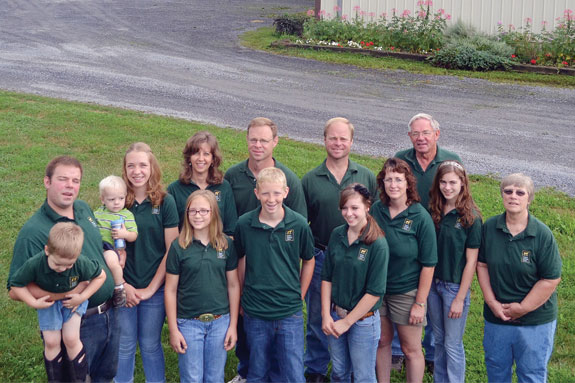
Hosted by: Dutch Hollow Farm, LLC, Schodack Landing, New York
627 Milking/Milk Production
Sponsored by: American Jersey Cattle Association
Dutch Hollow Farm is home to one of the most productive Jersey herds in the U.S., with a rolling herd average exceeding 19,500 pounds milk at 4.7 percent fat and 3.6 percent protein.
Since its inception in 1976 by Paul and Melanie Chittenden, the operation has expanded internally to four times its original size as three sons, Brian, Alan and Nathan, have joined the operation with never a break in production and type improvement.
More than 200 cows have achieved lifetime production in excess of 100,000 pounds of milk. Three different Million Pound Clubs – a combination of five herdmates with total lifetime production of over one million pounds – have been developed and promoted.
Dutch Hollow has been arguably the most influential source of polled Jersey genetics in the U.S. for more than 30 years, following the path blazed by Paul’s father, Stanley Chittenden, at Fair Weather Farms.
Milk is marketed through premium-quality cheeses manufactured by Cabot Creamery, the Creamery at Twin Brook and Beecher’s Handmade Cheese in New York City.
Because the farm is located near major urban areas in the densely populated northeast U.S., the Chittendens are keenly aware of how their farming and animal-care practices impact consumer perceptions of the dairy business.
In an effort to help educate consumers, the Discovery Dairy Center was opened in 2011. This educational program offers lessons that meet the New York education standards in science, social studies and math for children pre-kindergarten through sixth grade.
Thursday, October 3
10 a.m. Arena Building
Using Forage Fiber Analyses to get the Most from Your Cows
Rick Grant
President, William H. Miner Agricultural Research Institute, Chazy, New York
Are you analyzing forages for physically effective fiber and fiber digestibility? Both are important for creating high-forage, low-grain diets that support high milk production. Rick Grant will discuss methods of fiber analysis and the desired nutrient and digestibility profiles to improve the response of your cows to forage in the diet.
11 a.m. Mendota 2
“Opportunities and Challenges in the Use of Automated Calf Feeders”
Dr. Robert James
Professor, Virginia Tech
Sponsored by: Land O’Lakes Animal Milk Products
Noon – Virtual farm tour Mendota 1
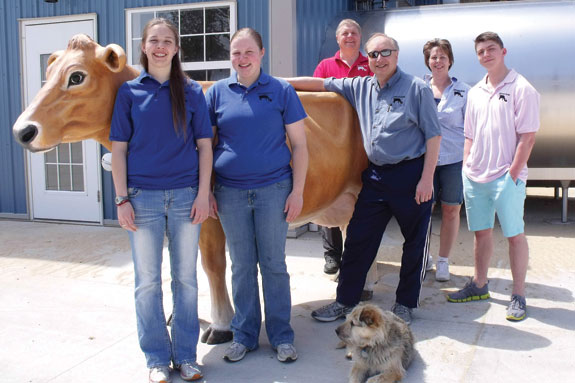
Hosted by: Cinnamon Ridge,
Donahue, Iowa
260 Milking/Robots
Sponsored by: Lely
For over six generations, the Maxwell family, including brothers John and Edwin, and John’s daughters, Amy and Kara, has been farming in Iowa.
During that time, Cinnamon Ridge has seen growth, adaptation of new technology and diversification.
The farm is named for the “cinnamon” color of the Jerseys, and “ridge” is for the elevation of the farm.
In the last 12 months, the farm has expanded to 260 Jerseys, with a rolling herd average of 21,234 pounds of milk, making them the seventh-highest-producing Jersey herd in the U.S. This expansion was made possible by the addition of robotics.
Cinnamon Ridge is focused on becoming the top Jersey production herd in the nation. Their milk is processed on the farm into cheese, which is sold in the retail store and restaurant on-site.
In addition to the dairy herd, Cinnamon Ridge is also home to a beef cow and embryo operation, a 10,000-head swine facility and poultry egg production. There is also an event center that the Maxwells use for farm tours.
The farm hosts 2,500 visitors annually from all over the world. The center is also available for public events, such as weddings, and wine and cheese parties.
1:00 p.m. Mendota 2
“Milking with Robots: How is it Done?”
Dr. Marcia Endres
Professor, University of Minnesota – Twin Cities
Sponsored by: GEA Farm Technologies Inc.
1:30 p.m. Arena Building
Have You Kept Pace with Improved Forage Testing Options?
Neal Martin
Retired center director, U.S. Dairy Forage Research Center, Madison, Wisconsin
Forage testing options are continually evolving as the industry strives to provide tests that are more accurate and capable of ensuring that rations are supporting the nutritional needs of today’s high-producing dairy cows.
Neal Martin, recently retired director of the U.S. Dairy Forage Research Center, will explain this evolution and also address current efforts to meet new challenges such as diets with excessive crude protein; diets with unknown starch concentration, starch availability and starch digestion; and silage fermentation profile analyses.
2 p.m. – Virtual farm tour Mendota 1
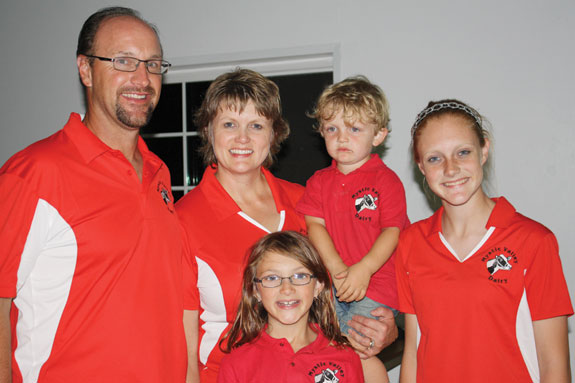
Hosted by: Mystic Valley Dairy LLC, Sauk City, Wisconsin
425 Milking/Genetics
Sponsored by: Select Sires Inc.
Mystic Valley Dairy LLC has developed some of the most influential Holstein bloodlines in the world.
Mitch Breunig, his wife, Jackie, and children, Alison, Lauren and Brayden, are the owners and operators of Mystic Valley Dairy.
The 425-cow herd is home to the Jenny-Lou prefix and herd matriarch Jenny-Lou Patron Toyane.
She is the dam of Toystory, Lou and Trump. Toystory is the only bull in history to have more than two million doses sold.
Trump is currently a Top 100 Type sire, and Lou is a producer favorite. Other notable families in the herd include Chief Adeen, 2nd-Look Durham Juba and Mellary Goldwyn Fate. Mystic Valley is a top 10 BAA herd for their herd size at 106.5 and has won numerous Progressive Breeder awards.
Top genetics isn’t their only focus. With great care being given to nutrition and cow comfort, this registered Holstein herd has a rolling herd average of 32,651 pounds of milk with a somatic cell count of just 87,000.
The freestall barn features extra-wide stalls and additional lunge space. The cows receive an SCR rumination monitor to measure cow health and wellness as well as aid in achieving maximum reproductive performance.
These combined achievements has led to Mystic Valley marketing an extra 80 cows per year and selling embryos to Germany, the Netherlands, China and Australia.
Friday, October 4
10 a.m. – 3 p.m.
Grazing seminar series Mendota 3
10 a.m . Arena Building
Plastic Covers and Silage Density: What’s New and Basic in Making Good Silage?
Richard Muck
Agricultural engineer, U.S. Dairy Forage Research Center, Madison, Wisconsin
Packing and covering are key steps to keeping losses low in bunker and pile silos. That’s not news, but there are new products to improve either covering or packing.
Are they worth it? Richard Muck, an agricultural engineer specializing in silage management at the U.S. Dairy Forage Research Center, will share how some of these products have fared in recent research.
11 a.m. Mendota 2
“Say What? When to Tell Your Social Media Story”
Michele Payn-Knoper
Moderator, Cause Matters Corp.
Carrie Mess
DairyCarrie.com
Emily Zweber
Zweber Family Farms
David Foster
Foster Dairy
Sponsored by: Digi-Star
Noon – Virtual farm tour Mendota 1
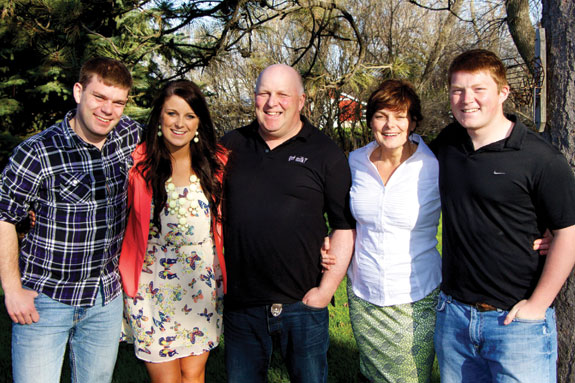
Hosted by: Drumgoon Dairy, Lake Norden, South Dakota
1,950 Milking/Calf and Heifer Care
Sponsored by: Quality Liquid Feeds Inc.
Drumgoon Dairy made the move from Ireland to the U.S. in 2006.
Rodney and Dorothy Elliott, along with their children, David, James and Becky, wanted to expand their dairy but were unable to do so in Ireland.
After searching across Europe and finding limited opportunity to expand their dairy, the decision was made to build a new dairy in South Dakota.
Over the last seven years, the Elliotts have focused their efforts on cow comfort and raising heifers. Calves are given the best start possible.
Colostrum is collected and tested with a refractometer for quality. Within three days, calves are transitioned to one of two automatic calf feeders.
Calves are housed in small groups until they are weaned and transitioned again to a high-energy diet. This helps heifers reach a breeding weight of 800 pounds faster.
Since implementing this heifer feeding system, heifers have gone from calving at 24 months to calving at 22 months. Currently, the 1,950-cow herd has a rolling herd average of 24,700 pounds of milk.
After calving, heifers are moved into the cross-ventilated barn to join the milking herd. Drumgoon Dairy contracts all their feed with neighboring farms.
1 p.m. Mendota 2
“Adoption of Revenue Risk Management and Why Knowing Your Income Over Feed Cost is Important”
Dr. Brian Gould
Professor, University of Wisconsin – Madison
Sponsored by: Badgerland Financial
1:30 p.m. Arena Building
Using Propionic Acid to Preserve More Hay
Wayne Coblentz
Research dairy scientist and agronomist, U.S. Dairy Forage Research Center, Marshfield, Wisconsin
Historically, propionic acid-based preservatives for hay have demonstrated effectiveness within research studies, but these studies mostly have relied on small rectangular bales to test various product formulations.
Recent studies with large round bales have been disappointing, but other studies utilizing propionic acid-based preservatives on large rectangular bales have produced excellent results.
Wayne Coblentz, a dairy scientist with the U.S. Dairy Forage Research Center, will review research results obtained with a variety of bale types and offer practical advice on when and how to use propionic acid to preserve hay.
2 p.m. – Virtual farm tour Mendota 1
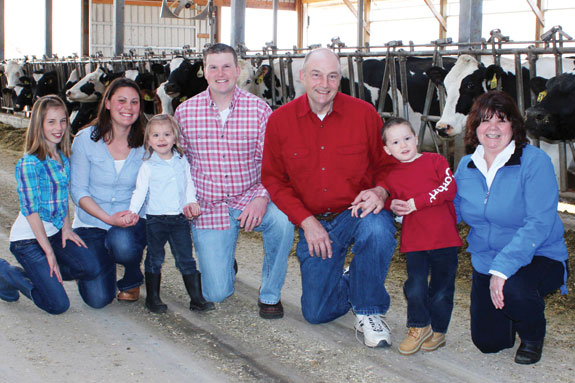
Hosted by: Finger Family Farm, LLC, Oconto, Wisconsin
582 Milking/Cow Management
Sponsored by: Vita Plus Corporation
Currently in its fifth generation, the Finger Family Farm has witnessed its share of changes since the dairy’s beginning in 1872.
In 2008, the farm experienced marginal milk production, a high calf mortality rate and a high herd cull rate.
With the dissolution of a business partnership, Jack and Nancy Finger capitalized on a fresh start with their son and daughter-in-law, Phil and Laura. They placed a higher priority on cow comfort and calf care.
The family oversaw the building of a new freestall facility with wider and longer stalls for the 582-cow herd. Cows transitioned from mattresses to sand bedding, which has led to improved foot and leg health.
Calves moved to hutches, and new heifer facilities were constructed in 2013. The family also focused more intently on feed quality and nutrition. These changes have shown in increased milk per cow.
In four years, the Finger Family Farm has improved its average daily production to 100 pounds per day. Their current rolling herd average surpasses 30,400 pounds of milk with a somatic cell count under 150,000.
They have reduced their calf mortality rate to below 2 percent, allowing the family to start marketing animals.
Saturday, October 5
10 a.m. Arena Building
Corn Silage Yield Drivers and Profit Robbers
Joe Lauer
Extension agronomist, University of Wisconsin – Madison
11 a.m. Mendota 2
“Best Management of Transition Cows”
Dr. Robert Van Saun
Professor and extension veterinarian, Penn State University
Sponsored by: QualiTech Inc.
Noon – Virtual farm tour Mendota 1
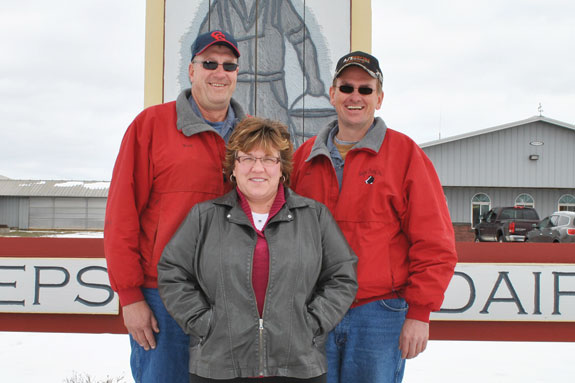
Hosted by: Scheps Dairy Inc., Almena, Wisconsin
920 Milking/RFID Technology
Sponsored by: AgSource Cooperative Services
At Scheps Dairy, efficiency is a top priority as the herd has continued to grow steadily since it was founded in 1977 by Ken Scheps.
In 1999, Ken and his wife, Debbie, completed an initial expansion and welcomed Ken’s brother, Dan, as a partner in the operation.
Dan brought with him a degree from UW – River Falls and five years of experience as a dairy nutritionist.
To help improve the dairy’s efficiency, each of the 920 cows and youngstock are outfitted with RFID tags. With these tags, the Scheps are able to closely monitor each cow.
Tracking software is also used to monitor feed intake. Additionally, they rely heavily on milk-test information and other tools to measure the dairy’s success.
It was through these tools that they recognized the need to build a transition barn in 2007. Transition cows were struggling after calving, costing money through the course of their lactation.
By working with financial advisers, they were able to justify the cost of building the facility they needed. Currently, the herd has a rolling herd average of 32,166 pounds of milk with 1,294 pounds of fat and 1,033 pounds of protein while maintaining a somatic cell count of 121,000. PD
